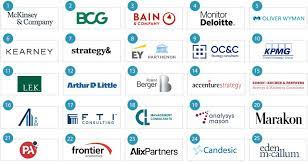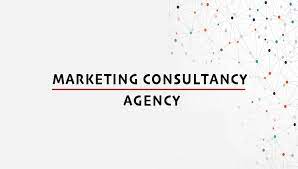Strategic Success Unleashed: The Power of Strategy Firms in Driving Business Growth
Strategy Firms: Unlocking Success through Strategic Thinking
In today’s competitive business landscape, companies are constantly seeking ways to gain an edge over their rivals. This is where strategy firms come into play, offering a unique set of skills and expertise that can help businesses navigate complex challenges and unlock new opportunities.
Strategy firms are specialized consulting firms that focus on providing strategic advice and solutions to organizations across various industries. Their primary goal is to help businesses develop effective strategies that drive growth, improve performance, and achieve long-term success.
One of the key strengths of strategy firms lies in their ability to think strategically. They possess a deep understanding of market dynamics, industry trends, and competitive landscapes. By leveraging this knowledge, they can assist companies in identifying their strengths and weaknesses, recognizing potential threats, and capitalizing on emerging opportunities.
At the core of every successful business lies a well-defined strategy. Strategy firms work closely with their clients to develop tailored strategies that align with their specific goals and objectives. They conduct thorough analyses, including market research, competitor assessments, and internal evaluations to gain a comprehensive understanding of the business environment.
Once armed with this information, strategy firms employ critical thinking and creative problem-solving techniques to devise innovative strategies. They help businesses identify areas for improvement, explore new markets or customer segments, optimize operations, and enhance overall performance.
Furthermore, strategy firms provide valuable insights into emerging trends and disruptive technologies that could impact businesses in the future. By staying ahead of the curve, they assist companies in adapting to changing market conditions effectively.
Collaboration is another key aspect of working with strategy firms. These firms engage closely with their clients’ teams at all levels to ensure alignment throughout the strategic planning process. By involving key stakeholders from different departments or functions within an organization, they foster a sense of ownership and commitment towards the strategic goals.
Strategy firms also play a crucial role in guiding businesses through major transformations or transitions such as mergers and acquisitions, market expansions, or organizational restructuring. They help companies navigate these complex processes by providing expert advice, conducting due diligence, and developing integration plans that minimize risks and maximize synergies.
Moreover, strategy firms act as objective third-party advisors. They bring an external perspective to the table, free from internal biases or preconceived notions. This impartiality allows them to challenge existing assumptions, encourage innovative thinking, and push businesses beyond their comfort zones.
In conclusion, strategy firms are invaluable partners for businesses seeking to thrive in today’s dynamic marketplace. Their strategic thinking capabilities, industry expertise, collaborative approach, and objectivity make them well-equipped to guide companies towards sustainable growth and success.
By leveraging the services of a reputable strategy firm, businesses can unlock their full potential and gain a competitive advantage. So if you’re looking to take your organization to new heights, consider partnering with a strategy firm that can help you navigate the complexities of today’s business world with confidence.
Frequently Asked Questions About Strategy Firms in the UK
- Is McKinsey a strategy consulting firm?
- What does a strategy firm do?
- What are the top 3 strategy consultants?
- What are the big three strategy firms?
Is McKinsey a strategy consulting firm?
Yes, McKinsey & Company is indeed one of the most renowned and influential strategy consulting firms in the world. Founded in 1926, McKinsey has established itself as a global leader in management consulting, offering strategic advice and solutions to organizations across various industries and sectors.
McKinsey’s expertise lies in providing strategic guidance to help businesses address complex challenges, drive growth, improve performance, and achieve long-term success. They assist clients in developing effective strategies by conducting rigorous analysis, market research, and industry benchmarking. Their consultants work closely with clients’ teams at all levels to ensure alignment and implementation of strategic initiatives.
With a vast network of experienced professionals and subject matter experts, McKinsey has a reputation for delivering high-quality insights and innovative solutions. They are known for their rigorous problem-solving approach, data-driven decision-making processes, and ability to navigate complex business environments.
McKinsey’s client base includes major corporations, governments, non-profit organizations, and institutions around the world. Their services cover a wide range of areas such as strategy development, organizational transformation, operations improvement, digital transformation, mergers and acquisitions, sustainability initiatives, and more.
The firm’s commitment to excellence has earned it a strong reputation within the consulting industry. McKinsey consultants are highly sought after for their expertise and thought leadership on critical business issues. They often publish insightful research reports, articles, and books that contribute to the advancement of management practices globally.
It is worth noting that while McKinsey primarily operates as a strategy consulting firm, they also offer services in other areas such as implementation support through their “McKinsey Implementation” practice.
Overall, McKinsey & Company remains an influential player in the field of strategy consulting due to its extensive experience working with diverse clients worldwide and its commitment to driving transformative results through strategic thinking.
What does a strategy firm do?
A strategy firm specializes in providing strategic advice and solutions to businesses across various industries. Their primary role is to help companies develop effective strategies that drive growth, improve performance, and achieve long-term success. Here are some key activities and services that a strategy firm typically offers:
- Strategic Planning: Strategy firms work closely with their clients to develop comprehensive strategic plans. They conduct thorough analyses of the business environment, including market research, competitor assessments, and internal evaluations. Based on this information, they help businesses define their vision, mission, goals, and objectives.
- Market Research and Analysis: Strategy firms excel in gathering and analyzing market data to identify trends, customer preferences, and emerging opportunities. They help businesses understand their target audience better and make informed decisions regarding market entry or expansion strategies.
- Competitive Analysis: Strategy firms assess the competitive landscape to identify strengths, weaknesses, opportunities, and threats (SWOT analysis) for their clients. By understanding the competitive dynamics of an industry, they assist businesses in differentiating themselves from competitors and developing effective positioning strategies.
- Business Model Evaluation: Strategy firms evaluate existing business models to identify areas for improvement or potential disruptions. They provide insights into new revenue streams or innovative approaches that can enhance profitability and sustainability.
- Performance Improvement: Strategy firms help businesses optimize their operations by identifying inefficiencies or bottlenecks within processes. They analyze key performance indicators (KPIs), recommend improvements, implement performance measurement systems, and track progress towards achieving goals.
- Growth Strategies: Strategy firms assist companies in identifying growth opportunities beyond their current markets or customer segments. This may involve exploring new geographic regions, diversifying product/service offerings, or entering strategic partnerships/acquisitions.
- Innovation Consulting: Strategy firms encourage innovative thinking within organizations by facilitating brainstorming sessions and providing frameworks for idea generation. They help businesses develop innovation strategies that foster creativity while aligning with overall business objectives.
- Change Management: Strategy firms support businesses through major organizational changes, such as mergers and acquisitions, restructuring, or digital transformations. They provide guidance on change management processes, communication strategies, and implementation plans to minimize disruption and ensure a smooth transition.
- Risk Assessment and Management: Strategy firms help businesses identify potential risks and develop risk mitigation strategies. They conduct risk assessments, evaluate the impact of external factors on business operations, and develop contingency plans to address potential threats.
- Thought Leadership: Strategy firms often assist clients in establishing themselves as industry thought leaders. They help businesses develop content strategies, thought leadership campaigns, and public relations initiatives to enhance brand reputation and credibility.
Overall, strategy firms play a critical role in guiding businesses towards success by providing strategic thinking capabilities, industry expertise, objective advice, and customized solutions tailored to their clients’ specific needs.
What are the top 3 strategy consultants?
While it is difficult to definitively determine the top three strategy consultants, as rankings and opinions may vary, there are several prominent firms that are widely recognized for their expertise in strategy consulting. Here are three well-regarded strategy consulting firms:
- McKinsey & Company: McKinsey & Company is a global management consulting firm known for its deep industry knowledge and strategic insights. With a rich history spanning decades, McKinsey has established itself as a leader in the field of strategy consulting. They work with clients across various sectors to develop innovative strategies, improve operations, and drive growth.
- The Boston Consulting Group (BCG): BCG is another renowned strategy consulting firm that has made significant contributions to the field. Known for its rigorous analytical approach and thought leadership, BCG assists clients in tackling complex strategic challenges and transforming their businesses. Their expertise spans industries such as technology, healthcare, consumer goods, and more.
- Bain & Company: Bain & Company is highly regarded for its strategic advisory services and has a strong reputation for delivering impactful results. They work closely with clients to develop tailored strategies that address market dynamics and drive sustainable growth. Bain’s collaborative approach and focus on practical implementation make them a trusted partner for many organizations.
It’s worth noting that there are several other reputable strategy consulting firms globally, each with its own strengths and areas of specialization. The choice of the “top” firm ultimately depends on specific needs, industry context, and client preferences.
What are the big three strategy firms?
The “Big Three” strategy firms, also known as the “MBB” firms, refer to the three leading global management consulting firms: McKinsey & Company, The Boston Consulting Group (BCG), and Bain & Company. These firms are renowned for their expertise in strategy consulting and have established themselves as industry leaders over several decades.
- McKinsey & Company: Founded in 1926, McKinsey & Company is one of the most prestigious and influential consulting firms worldwide. Known for its rigorous problem-solving approach and analytical expertise, McKinsey advises clients across a wide range of industries on strategic issues, organizational transformations, operational improvements, and more.
- The Boston Consulting Group (BCG): Established in 1963, BCG has become synonymous with strategic thinking and innovation. BCG focuses on helping clients achieve competitive advantage through in-depth analysis, market insights, and forward-thinking strategies. They are recognized for their expertise in areas such as growth strategy, digital transformation, and business model innovation.
- Bain & Company: Founded in 1973 by former partners of BCG, Bain & Company has grown to become a leading global management consulting firm. Bain is known for its unique approach to client engagements that emphasizes practical results and actionable recommendations. They specialize in areas such as corporate strategy, performance improvement, mergers and acquisitions (M&A), and customer experience optimization.
These three firms have built a strong reputation for delivering high-quality strategic advice to top-tier clients globally. Their consultants possess deep industry knowledge, analytical skills, and a track record of helping organizations tackle complex challenges successfully.
It’s worth noting that while McKinsey, BCG, and Bain are often referred to as the “Big Three,” there are other prominent strategy consulting firms globally that also provide exceptional services to clients across various industries.




